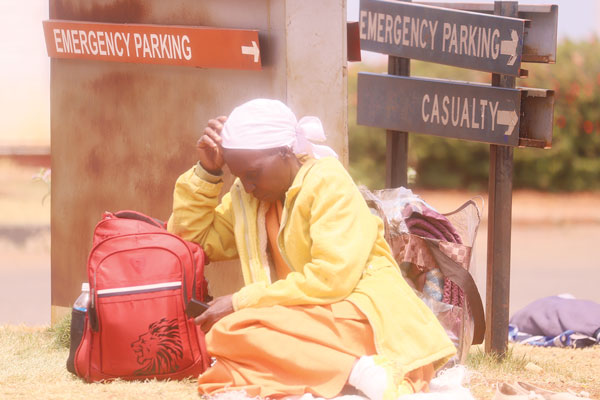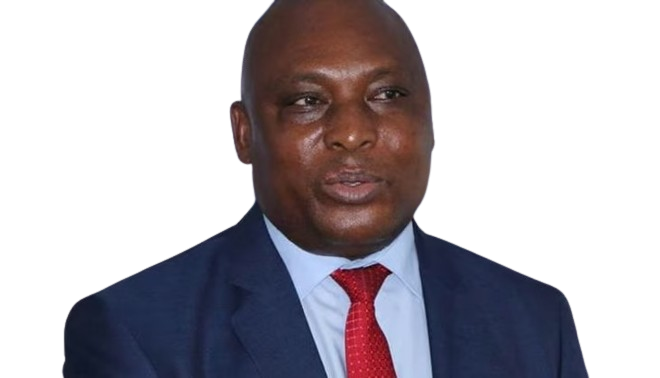
BY VANESSA GONYE
ORDINARY citizens whose pockets are not deep enough to afford private medical care continue to bear the brunt of the ongoing stand-off between medical doctors — who have been on industrial action for over two months now — and government.
People with various ailments are gambling with death as many have since stopped going to seek medical attention at public hospitals, where they are routinely turned away due to the unavailability of doctors.
Hope in the public health system recuperating and going back on its feet has been lost and the pain has been worst felt by chronically ill patients who rely on the doctors’ services from time to time.
Faina Guruuswa (not her real name), has suffered from anal cancer for 11 years, having been in and out of hospital since 2008, seeking services to at least ease her recurring ailment.
The growth is often cut, but it grows again at a slightly different spot. She has had to become a permanent resident at one of the country’s biggest health institutions, where she is being attended to.
When NewsDay visited her, she was fearful that speaking to the media would attract severe backlash from hospital authorities.
Sometime in September soon after the doctors downed their tools, she had to go for an incomplete chemotherapy treatment.
- Chamisa under fire over US$120K donation
- Mavhunga puts DeMbare into Chibuku quarterfinals
- Pension funds bet on Cabora Bassa oilfields
- Councils defy govt fire tender directive
Keep Reading
Chemotherapy treatment may be a single drug or a combination of drugs. The drugs may all be given on a single day, several consecutive days, or continuously.
Guruuswa was given three doses, instead of five, and was told it was just a favour being accorded her since doctors were on strike.
Such is the case for many in her situation. Scheduled treatment is no longer guaranteed, further worsening their situation as cancers are bound to spread rapidly.
Guruuswa said she was now living in uncertainty over how long she would be stuck at the hospital awaiting services in the face of the doctors’ prolonged strike.
“My condition started in 2008 soon after I started anti-retroviral treatment. I developed small pimples in my anal area and I sought treatment which was not entirely successful,” she said.
Five years down the line, she said it started growing again and she received medical attention, but it recurred again in 2015 and she had to go to Karoi General Hospital to have it removed.
“The growth started again and in 2016, I went to a bigger provincial hospital for another operation, but the growth wasn’t completely healed and I was in excruciating pain. I have had to live on painkillers until now. I am on morphine to help ease the pain,” she said, barely being able to conceal the pain gnawing at her as she narrated her ordeal.
She came to Harare in winter this year because she felt she was now being a burden to her sister, who had accommodated her in Chiredzi, but was also struggling.
Things turned for the worst when the doctors’ strike began and her dream of ever getting better have been shattered.
“Things have changed. Before this, we did not have problems getting treated. It was timely and straight-forward,” she recalled.
Guruuswa has had to endure the harsh economic conditions and is living off the hospital after authorities availed a shelter for those in her situation at the Annex Psychiatric Unit.
She, however, keeps holding on to the last straw of hope that the doctors will return to work and she gets her scheduled treatment before things turn for the worst.
A visit to Parirenyatwa Group of Hospitals on Thursday evening last week proved that things were far from normal.
As the NewsDay crew sat in the casualty area trying to figure out how people were being served in the wake of the ongoing doctors’ strike, one of the senior doctors finally came after close to two hours of waiting.
“Doctors are on strike, but I am here to assist you with your next step,” the doctor said.
He told one woman who had brought a young man who had drunk poison, to take him back home and force him to drink lots of water because there was no doctor to deal with his condition.
Two women who had a baby with an ulcer on the thumb were told to rush to a private practice as their case was an emergency, which, under normal circumstances, would have been quickly dealt with at the hospital.
Several others were told to go back home.
Zimbabwe Hospital Doctors Association spokesperson Masimba Ndoro told NewsDay that while they drew no pleasure in seeing their patients suffering, the onus was on government to ensure that the basic right to health was upheld.
“We really want to be with our patients. We don’t draw any pleasure from their suffering. It is quite sad that people are being deprived of their right to health as a result of the impasse.
“It is the government’s responsibility to make sure that people are accorded quality health. The government should quickly come to terms with regards to accepting that we have a problem,” he said.
Community Working Group on Health (CWGH) executive director Itai Rusike said the ongoing impasse between government and the doctors was taking its toll on patients and there was need to resolve the crisis urgently.
“CWGH is greatly worried by the incapacitation crisis and prolonged impasse between the doctors and their employer, which has resulted in untold suffering of patients and even deaths that could have been avoided under normal circumstances,” he said.
“While we acknowledge the genuine grievances of the doctors and the financial position of government, we would like to urge the two parties to put patients first and at the centre of their dialogue to save lives and stop the suffering.”
The doctors have remained adamant and have vowed not to return to work until government offered a meaningful remuneration, among other things.
Government has already fired 211 striking doctors after conducting disciplinary hearings, albeit boycotted by the medical practitioners.
At least 516 doctors face the axe as the disciplinary hearings continue.
Meanwhile, Guruuswa’s life, and that of other patients in critical conditions, remain in the balance.











